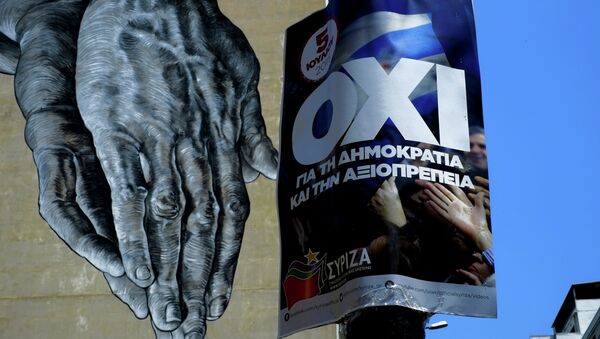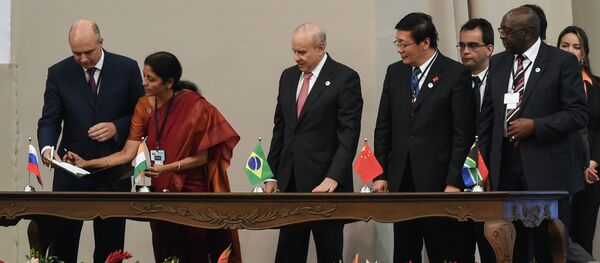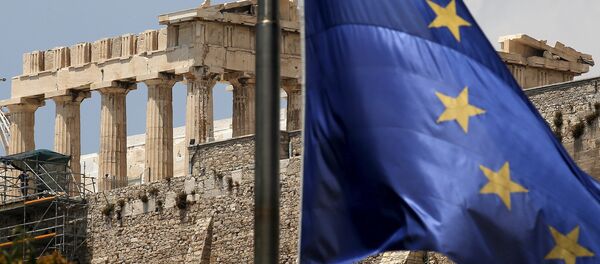On Sunday, more than 61 percent of Greeks voted "No" to the lender-proposed bailout deal, comprising a set of austerity measures, including pension cuts and tax increases, in exchange for a new financial aid package for the country.
"The message of "No" is a message that Greece will stay in Europe and the Eurozone, but not as a second-category member state. But as an equal member state along with the other twenty-seven [members] within the European Union and the other 18 states within the Eurozone," Isychos said.
The deputy defense minister added that the "no" vote is also a message of democracy and the sovereignty of the Greek nation "against all those who believe that Greece can become a neocolonial region in the South of Europe."
Greece to Present Formula Paving Way for Bailout Deal at Eurozone Summit
On Tuesday, an emergency Eurozone summit and a meeting of the Eurogroup will take place to discuss the results of Sunday's referendum in Greece and it is expected that Athens will unveil new bailout proposals.
“Well, today's summit of the European leaders is of great importance since our Prime Minister will present a presentation, he will present a formula that will open the road for a successful negotiation and a successful agreement,” Isychos said, just hours before the emergency meeting on the Greek crisis.
The official emphasized that European institutions have to be responsible for the future of the European people and the European Union.
Greece Expects Mutually Beneficial Deal, Not Lender Memorandum
Athens expects a mutually beneficial agreement with its international creditors, but will not accept a memorandum associated with "social genocide," Costas Isychos told Sputnik.
"The word 'memorandum' does not exist within our political vocabulary, because that word has in its context politics or social genocide, neoliberal politics…We are hopeful of an agreement that will be mutually beneficial for Greece and for all the member states of the European Union," Isychos said.
In 2010, Greece and its international creditors — the European Central Bank (ECB), the International Monetary Fund (IMF) and some Eurozone nations — signed a memorandum of understanding on financial aid to the debt-ridden country.
Greece owes about $270 billion to the IMF, the ECB, and the Eurozone countries.
On June 30, Athens defaulted on a $1.7-billion loan repayment to the IMF.
The referendum has renewed fears that Greece might default on its outstanding multi-billion dollar debt and leave the Eurozone, returning to drachma.





